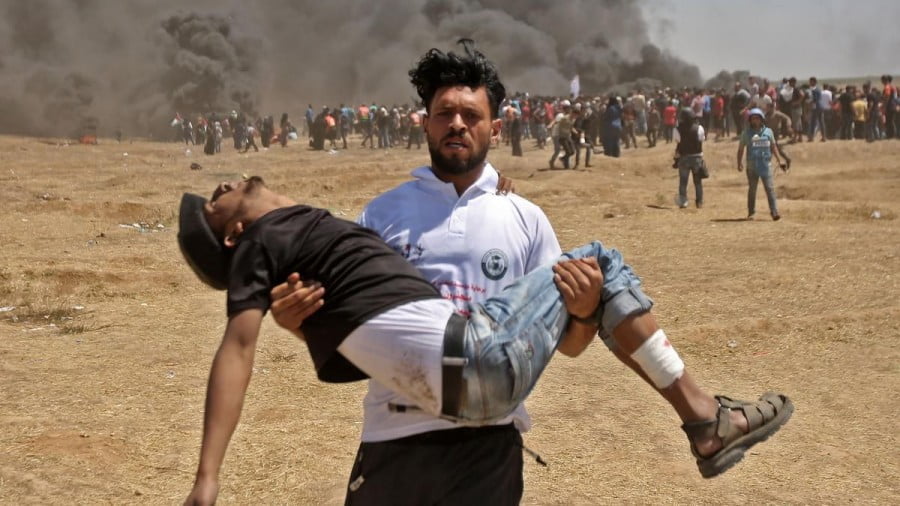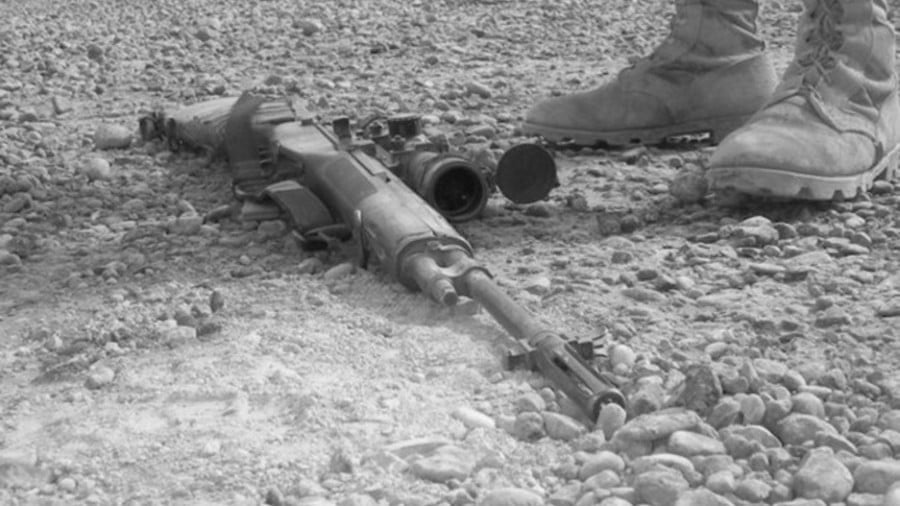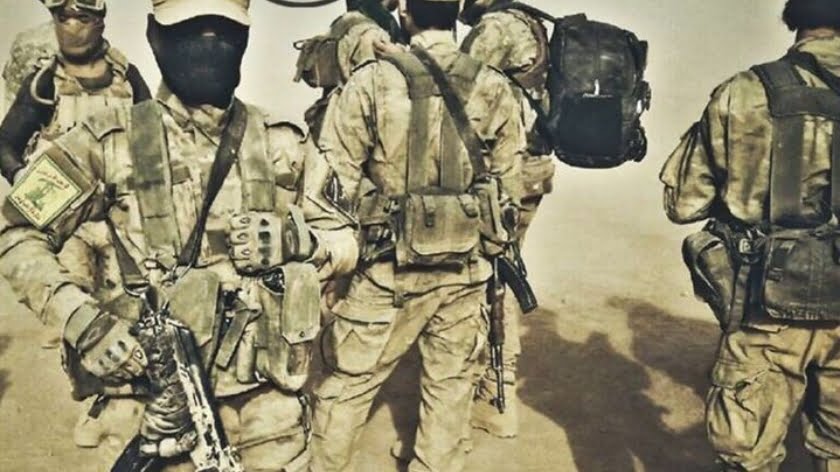Israel Warns: Another Gaza War Is Coming
Right now, it’s relatively quiet. But a radical new Israeli defense minister could mean a very hot summer in Gaza, military and intelligence officials warn.
JERUSALEM — Israel ended its last military operation in Gaza almost two years ago. But among some Israeli military officials, national security experts, and activists here, there is a palpable sense that another war is imminent, and that soon Hamas rockets will again be raining down on Israeli cities, prompting a crushing military response on thebeleaguered, 25-mile long strip.
The signs, to hear these people tell it, are plain to see: Despite Israeli efforts to increase the flow of goods in and out of Gaza, its economic health remains desperate. Hamas militants also may be under pressure to move now to strike Israeli neighborhoods along the Gaza border before a network of tunnels that gave them free entry into Israel is sealed up. Recent Israeli intelligence suggests that Hamas fighters have closely studied Israeli tactics from the last war, possibly in preparation for another conflict. And Israel’s new defense minister, sworn in this week, has threatened to assassinate the leader of Hamas, in turn prompting him to dare Israel to enter Gaza again.
“The feeling is now we’re on a countdown. There’s going to be another war,” said Sharon Stav, with the Movement for the Future of the Western Negev, an activist group whose members live in neighborhoods along the Gaza border and have been pressuring the Israeli government to find some diplomatic or humanitarian solution to the conflict with Hamas—anything short of another war. Stav and a colleague met with a delegation of U.S. and European visitors, which I joined, in the town of Netiv HaAsara, which came under daily rocket fire during the 2014 Gaza operations. The house where we met sits just feet from a guarded security barrier—a combination of concrete barricades and barbed wire fences—that seals Gaza off from Israel, at least above ground.
The residents’ anxieties about another conflict were echoed in private conversations with current and former Israeli military and intelligence officials, who spoke on the condition that they not be identified by name. They weren’t ready to predict the time and day of another outbreak in fighting. But in their expert opinion, the chances were high, maybe even as high as any point since July 2014, when Israel began a military campaign that lasted seven weeks and ended in the loss of thousands of lives, mostly in Gaza.
It’s hard to know whether their dire predictions are the result of some inescapable pessimism born of proximity to war or the residue of the last Gaza “operation,” as officials prefer to call it. One resident of Netiv HaAsara freely described herself and neighbors as suffering from “post-traumatic stress” after days on end of hearing air raid sirens that signaled residents had mere seconds to scramble into basement shelters to survive incoming rocket fire.
But the warning signs are real, and were brought into sharp relief this week with the appointment of Avigdor Lieberman, a right-wing politician whose bellicose, nationalist pronouncements had many Israelis I spoke to on edge and comparing him to Donald Trump.
Consider the facts on the ground: Thanks to technological innovations, the Israeli Defense Force has had more success lately finding and destroying the notorious tunnels that Hamas had once used to send waves of shooters into neighboring communities, terrifying local residents. Several security experts opined that Hamas may now try to use the tunnels again before they’re permanently closed.
At the only Israeli border checkpoint with Gaza, I saw huge piles of dirt where Israeli technicians had been digging in a search for new tunnels, like those that had come up not far from the checkpoint. Prime Minister Benjamin Netanyahu has praised the new technology as unique in the world, “a breakthrough in [Israel’s] efforts to locate tunnels.”
Israeli citizens I spoke to knew the military had developed some new technique—though precisely what it is still a mystery. But no one was celebrating an end to the wave of tunnel attacks that saw Hamas fighters popping up secretly in the night next to Israeli neighborhoods. Rather, more people were convinced that Hamas would send fighters now through whatever tunnels haven’t been discovered, a kind of last gasp attack.
Still others worry that an economic chokehold over Gaza will continue to make life unbearable for ordinary citizens and give Hamas a motivation to punish Israel for crippling the Gaza economy, especially during the sweltering Mideast summer. Currently, all goods in and out of Gaza move through that single Israeli check point along the strip’s eastern border. Situated on a vast, dusty expanse of flat, open land, huge trucks carrying fruit, furniture, fabric, all the trappings of daily life, queue up to head through a giant X-ray scanner which checks for weapons and contraband. It’s an arduous process that involves three stages—screening the goods in Israel, loading them onto trucks that carry them into Gaza, and finally distributing the goods via Palestinian drivers.
Israel says it has made strides increasing the amount of goods flowing into Gaza. Almost 400 tons of cargo head in every day now, doubling the figure of a year ago, according to official figures. And exports are coming, too, though not in sufficient volume to resuscitate Gaza’s devastated economy.
Egypt has cut off its crossing point into Gaza, leaving the residents entirely dependent on trucks from Israel for their daily needs, including cooking fuel. “The people are in bad shape. It’s too much suffering. They live with no hope,” one Israeli observer of the situation, who asked not to be identified by name, told me.
Then there is the unknown variable: Lieberman. Again not unlike Trump, some are wondering if he’ll change his tune once actually ensconced in office and scale back some his more ferocious rhetoric. In April, Lieberman promised the host of a TV interview show that were he to get the defense minister position, he would kill Hamas leader Ismail Haniyeh in 48 hours if the militant group didn’t return the bodies of two Israeli soldiers believed to have been killed in the 2014 Gaza operation and that are still in Hamas custody.
Lieberman’s pronouncements prompted a response from a senior Hamas official, who declared in a press statement, “If Lieberman is a real man, let him approach Gaza.”
Not everyone takes Liberman at his word. His chest-thumping threat spawned a mocking Website that asked, “Is Ismael Haniyeh dead yet?” complete with a 48-hour countdown clock. The answer: No.
But the position of defense minister is arguably the most powerful and important position in the Israeli government behind the prime minister. One former defense official told me privately she worried that Netanyahu might defer to Lieberman, whose own lack of experience in military operations troubles Israeli soldiers. “He hasn’t been in the room, making those split-minute decisions,” she said. In Lieberman, some see a man so cavalier about war that he might be foolish enough to start one.
There is a clear concern about the temperament and experience of a man some derisively call “Corporal Lieberman,” owing to his bare bones experience—one year as a military supply clerk. In a country where defense ministers usually claim an extensive military pedigree and significant combat time, Lieberman is a big question mark, and a red hot one at that, which makes people nervous. In Israel, war is too important not to be left to the generals, who these days may be the last ones who want another Gaza war.
Whether there will be a war with Gaza, there is clearly one among the country’s politicians and its generals. “The prime minister sees the defense establishment as a competitor to his authority and an opponent of his goals,” the prominent Israeli journalist Ronen Bergman, who is deeply sources in the country’s defense and intelligence agencies, wrote last month in the New York Times. “Putting Mr. Lieberman, an impulsive and reckless extremist, in charge of the military is a clear signal that the generals’ and the intelligence chiefs’ opposition will no longer be tolerated.”
Despite all the ominous warning signs, there are plenty who discount the prospects of another Gaza war, and who are urging Israelis to take a deep breath. In April, Amos Gilad, a senior defense ministry official and a retired general, said he was all but certain Israel and Hamas would keep the peace.
“This summer will be hot only because of the high temperature,” Gilad said. “Our deterrence is still very effective. Hamas will not attack us because it fears for itself.”
And yet, in communities close to the border, which would bear the brunt of renewed fighting, that confidence seems shaky, and at odds with the apparently political winds.
“Israel is getting more and more right wing, and the dream of living a normal life is getting further away,” said Sharon Sheli, another member of the Movement for the Future of the Western Negev. “Unfortunately in Israel, peace is a forbidden word.”
Source: thedailybeast.com







